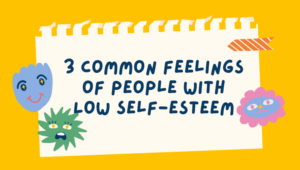I’m going to talk about how your shame can affect your mental health. Shame is a really tough emotion to deal with, and it can take a toll on your mental wellbeing if you’re not careful. I”ll explore some of the ways that shame can impact your mental health, and offer some tips on how to cope with it.

What is Shame?
Shame is an emotion that we all feel at some point in our lives. It is an intense feeling of embarrassment, humiliation, and worthlessness. Shame is often the result of feeling like we have failed in some way, or that we are not good enough.
Shame can be incredibly debilitating, and can lead to a feeling of isolation and loneliness. It can make us feel like we are not worthy of love or connection. Shame can also lead to negative coping mechanisms, such as substance abuse, self-harm, and eating disorders.
Five Ways to Overcome Shame
Shame is one of the most difficult and painful emotions we can experience. It can leave us feeling embarrassed, exposed, and unworthy. If you’re struggling with shame, know that you’re not alone. Here are 5 ways that may help you overcome this difficult emotion.
1. Acknowledge your shame.
The first step to overcoming shame is to acknowledge it. This may be difficult, but it’s important to recognize that shame is a part of your experience. Once you’ve acknowledged your shame, you can begin to work through it.
2. Understand where your shame comes from.
Shame is often rooted in our past experiences. It may be the result of something that happened to us, or it may be something that we did. Understanding where your shame comes from can help you start to work through it.
3. Talk about your shame.
Shame is often something we keep hidden away. But talking about it can be a powerful step in overcoming it. Find someone you trust and tell them about your shame. This can be a therapist, a friend, or a family member.
4. Write about your shame.
Writing about your shame can also be a helpful way to work through it. This can be a journal entry, a letter to yourself, or even a blog post. Writing can help you process your shame and start to work through it.
5. Reach out for help.
If you’re struggling to overcome shame on your own, reach out for help. There are many counseling and therapy options available. Find a therapist or counselor who can help you work through your shame.
Conclusion
It is important to remember that shame is not a permanent state. It is possible to heal from shame, and to develop a healthy sense of self-worth. Shame is not something that we have to live with forever.







